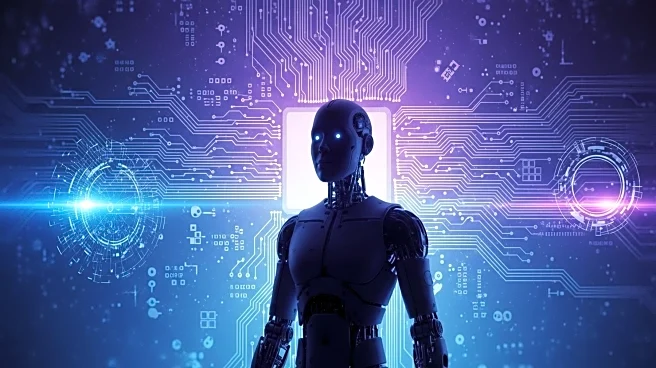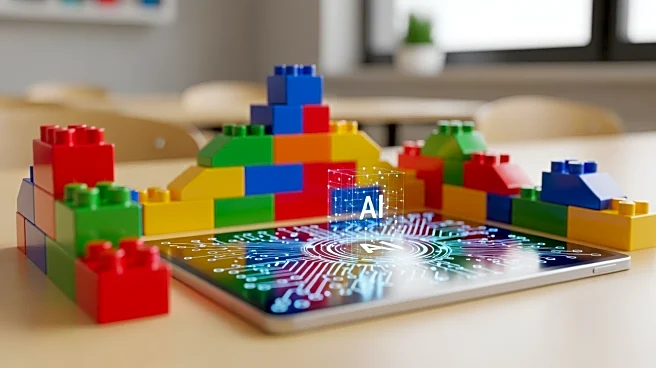What's Happening?
The Korea Institute of Machinery and Materials (KIMM) recently hosted the 12th Global Forum on Mechanical Engineering at the National Assembly Library. The event focused on the growing role of humanoid artificial intelligence and robotics in various industries and society. The forum, themed 'The Future of Humanoid AI and Robotics,' featured international experts such as Professor Dennis Hong from UCLA and Professor Glen Berseth from CIFAR/Université de Montréal. Discussions centered on advancements in AI, sensing, cognition, dexterous motion, and autonomous learning, which are propelling humanoid robots beyond automation to become collaborative partners in sectors like manufacturing, logistics, healthcare, and services. The forum included a keynote by Professor Hong and a panel discussion moderated by Professor Jung Kim of KAIST, exploring future pathways for humanoid technologies.
Why It's Important?
The forum highlights Korea's strategic focus on leading global innovation in AI-enabled humanoid robotics. As these technologies advance, they promise to transform industrial processes, enhance efficiency, and create new opportunities across various sectors. The convergence of AI, robotics, and mechanical technologies is expected to drive significant industrial innovation, positioning Korea as a key player in the global robotics landscape. This development could lead to increased collaboration between academia, industry, and government, fostering a robust ecosystem for technological advancement.
What's Next?
The forum's discussions suggest ongoing efforts to integrate AI and robotics into more industries, potentially leading to new partnerships and research initiatives. Korea's strategy to lead in AI-enabled humanoid robotics may result in increased investment and development in this field, with potential implications for global competitiveness in robotics technology.
Beyond the Headlines
The ethical and societal implications of humanoid AI and robotics were also considered, as these technologies could reshape workforce dynamics and raise questions about human-robot interaction. The forum's emphasis on collaboration suggests a proactive approach to addressing these challenges, ensuring that technological advancements align with societal needs and values.








